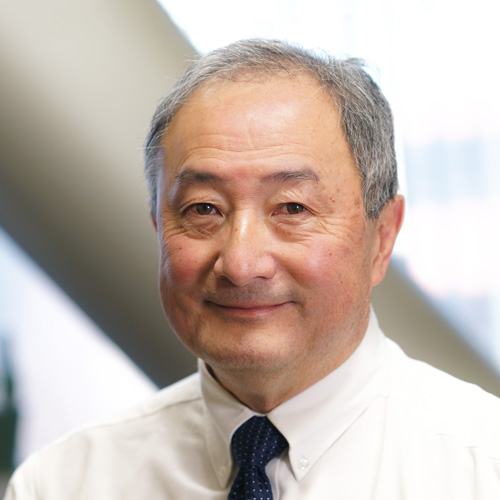Research Interests:
- Elucidating the functional contribution of glycan epitopes in normal and malignant processes
- Role of glycans and glycan-modifying enzymes in hematopoietic stem and progenitor cell maintenance and development
Biography
Dr. Joseph Lau joined the Faculty of Roswell Park Comprehensive Cancer Center in 1986 and in 2014 promoted to Distinguished Professor of Oncology and Distinguished Member of the Department of Molecular and Cellular Biology. Dr. Lau is a member of the Tumor Immunology and Immunotherapeutics Program. He received his training in Biochemistry and Ph.D. from Purdue University in 1981. Dr. Lau came to Roswell Park after postdoctoral traineeships at the Johns Hopkins School of Medicine under the directions of Dr. William Lennarz and subsequently Dr. Don Cleveland.
Positions
Roswell Park Comprehensive Cancer Center
- Professor of Oncology
- Distinguished Member
- Department of Molecular and Cellular Biology
Background
Education and Training
- 1981 - PhD - Biochemistry, Purdue University, W. Lafayette, IN
Fellowship
- Postdoctoral Fellow - Johns Hopkins School of Medicine
Professional Memberships
- American Society of Hematology
- Society of Glycobiology
Research Overview
The central thrusts of Dr. Lau’s research program are:
- elucidate the functional contribution of sialic acid epitopes in normal and malignant processes, and
- elucidate the molecular pathways that regulate the attachment of sialic acids.
The current main project is to examine the contribution of the sialyltransferase, ST6Gal-1, in innate and adaptive immune responses. There are a number of corollary projects to:
- examine the interaction between sialyltransferases and how this interaction influences the final outcome of sialyl-glycan structures;
- assess the biology roles of these sialyl epitopes and the cognate sialyltransferases in development of immune functions; and
- assess the influence of sialic acids in anti-tumor immunity.
The driving hypothesis of Dr. Lau’s research is that remodeling of cell surface glycan’s will alter critical tumor-host interactions, and understanding these interactions will offer clinical strategies that can lead to more effective anti-tumor immune responses and to investigate glycan-based molecular strategies for better clinical outcomes in bone marrow transplantations and in recovery from myeloablative conditions.
View the Lau LabPublications
- Nasirikenari M, Lugade AA, Neelamegham S, Gao Z, Moremen KW, Bogner PN, Thanavala Y, Lau JTY. Recombinant Sialyltransferase Infusion Mitigates Infection-Driven Acute Lung Inflammation. Front Immunol. 2019;10:48. Epub 2019/02/20. doi: 10.3389/fimmu.2019.00048. PubMed PMID: 30778346; PMCID: PMC6369197.
- Irons EE, Lee-Sundlov MM, Zhu Y, Neelamegham S, Hoffmeister KM, Lau JT. B cells suppress medullary granulopoiesis by an extracellular glycosylation-dependent mechanism. Elife. 2019;8. Epub 2019/08/14. doi: 10.7554/eLife.47328. PubMed PMID: 31408003; PMCID: PMC6713473.
- Irons EE, Lau JTY. Systemic ST6Gal-1 Is a Pro-survival Factor for Murine Transitional B Cells. Front Immunol. 2018;9:2150. Epub 2018/10/09. doi: 10.3389/fimmu.2018.02150. PubMed PMID: 30294329; PMCID: PMC6159744.
- Manhardt CT, Punch PR, Dougher CWL, Lau JTY. Extrinsic sialylation is dynamically regulated by systemic triggers in vivo. J Biol Chem. 2017;292(33):13514-20. Epub 2017/07/19. doi: 10.1074/jbc.C117.795138. PubMed PMID: 28717006; PMCID: PMC5566511.
- Dougher CWL, Buffone A, Jr., Nemeth MJ, Nasirikenari M, Irons EE, Bogner PN, Lau JTY. The blood-borne sialyltransferase ST6Gal-1 is a negative systemic regulator of granulopoiesis. J Leukoc Biol. 2017;102(2):507-16. Epub 2017/05/28. doi: 10.1189/jlb.3A1216-538RR. PubMed PMID: 28550122; PMCID: PMC5505748.
